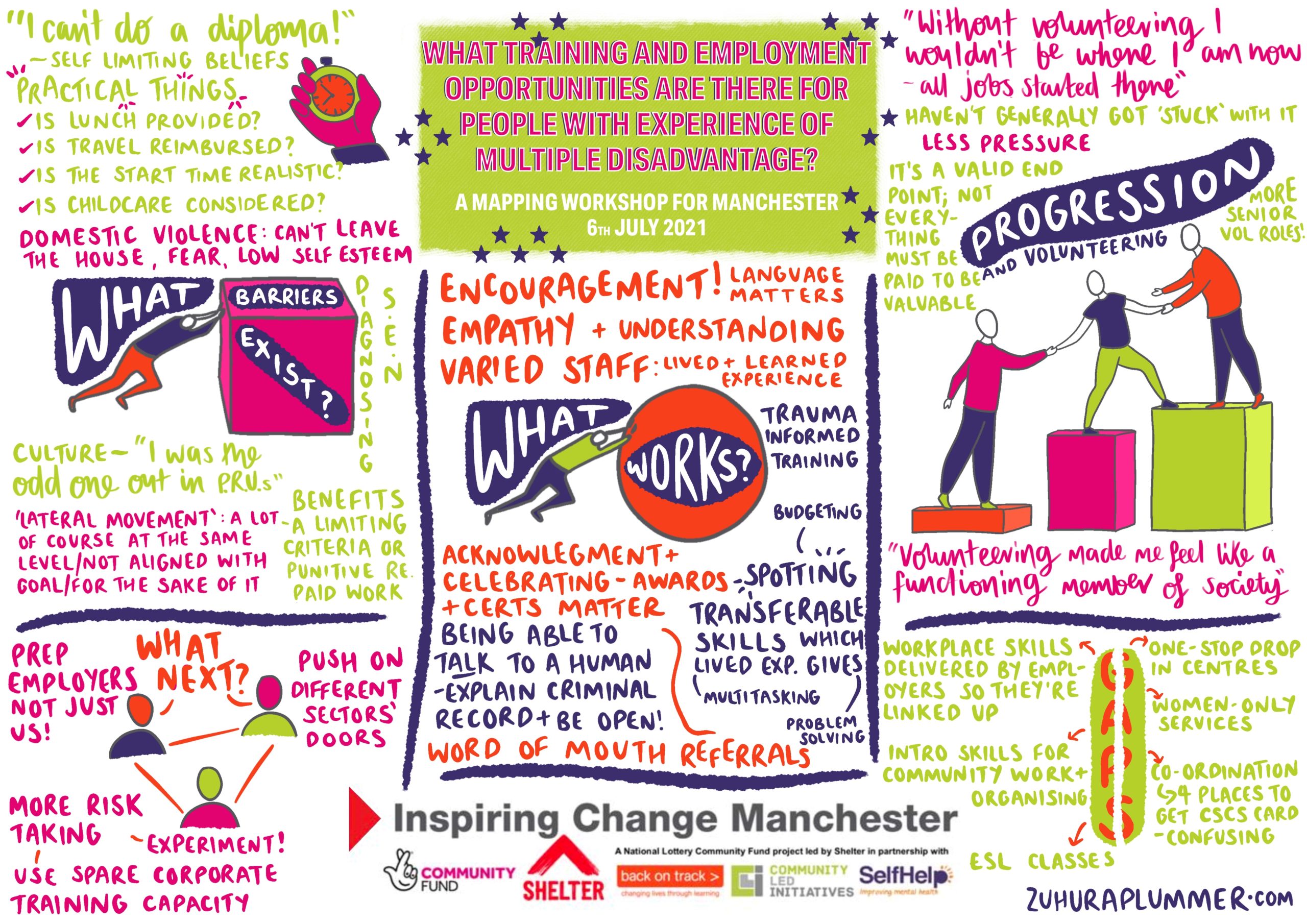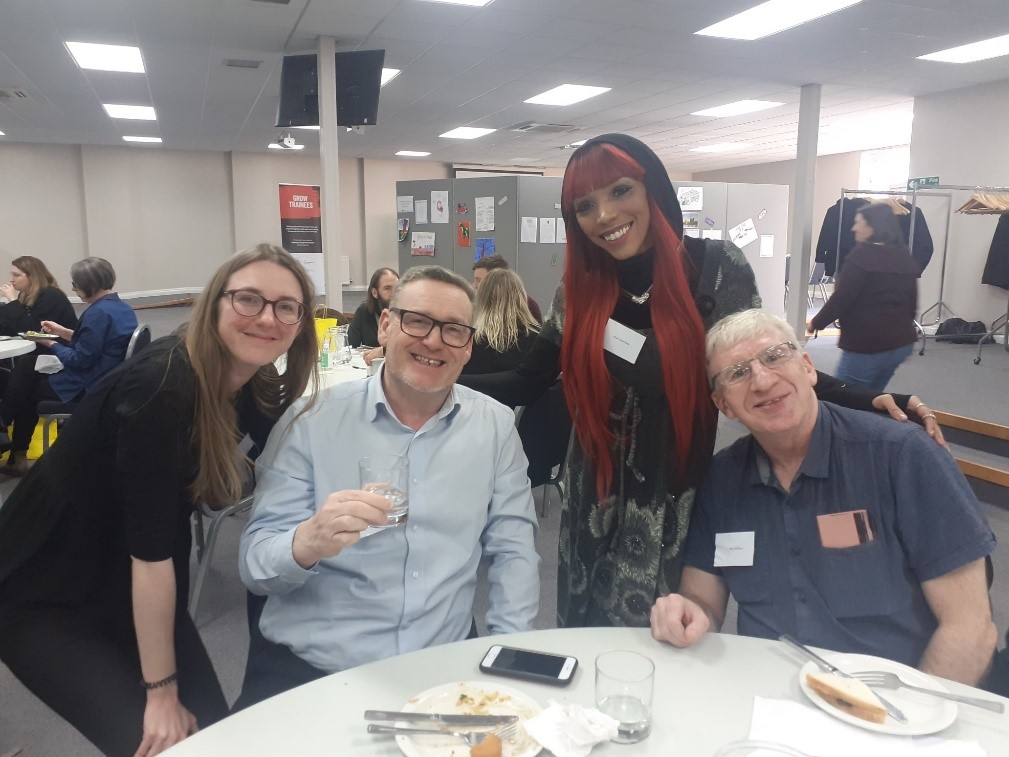
What pathways are there for training, volunteering and employment?
Today at Inspiring Change Manchester we are launching a piece of research which we have worked with Revolving Doors on. This looks at the different pathways into training, volunteering and employment for people with personal experience of multiple disadvantage across Manchester. Revolving Doors Evaluations Manager Lauren tells us about her experience working with ICM on this project and what she found.
At Revolving Doors we’re passionate about ensuring that people in contact with the criminal justice system can address their unmet needs and thrive. This helps to prevent reoffending and allows such individuals to reach their full potential.
I was excited about the opportunity to work on this peer research project to learn more about pathways into training, volunteering and employment for people with experience of multiple disadvantage in Manchester. Contact with the criminal justice system can be both a cause and a consequence of facing multiple disadvantage and so this was a natural fit for the team at Revolving Doors. We have also seen first-hand how having a range of opportunities benefit individuals, services and those accessing support, so I wanted to explore this further through this research.
What did we do?
I bought together a group of peer researchers based in the North West and we worked together to develop a set of questions. These were then asked to employers, policymakers, volunteer coordinators and people with lived experience of multiple disadvantage. From this we could compare our findings to the wider evidence base.
We also ran two mapping workshops to learn more about what was available and what helped or made it more difficult for people with experience of multiple disadvantage to benefit from training, volunteering or work opportunities.
There was agreement that there were loads of opportunities in Manchester, but that it was not always easy for someone with lived experience to make the most of this.
Not everyone has access to the internet to complete online applications, and people we spoke to describe their frustration with complicated job descriptions and lengthy processes, which sometimes put them off from applying. Entering volunteering or work is often a significant transition in people’s lives, and for those in support roles, this was sometimes emotionally draining.
So, what works?
To help people with lived experience of multiple disadvantage to enter and succeed in voluntary and paid roles, organisations should:
- – Advertise opportunities in a range of places, not just online
- – Make recruitment processes accessible and proportionate to the role in question
- – Provide practical & emotional support. In-work support can build confidence & overcome setbacks
- – Develop a workplace where people feel they can talk about worries and ask for advice it
- – Provide opportunities for staff and volunteers to upskill and get involve in wider initiatives
- – Put reasonable adjustments in place quickly so that people can maximise their potential
And what else needs to change?
Two of the bigger issues we found were that not everyone with experience of multiple disadvantage wants to be a support worker, and short-term contracts limit stability and financial security. Organisations should be ambitious about possibilities for people with lived experience, and Manchester should aim to create a greater variety of good quality opportunities for people with lived experience of multiple disadvantage
Efforts should also be made to make sure that training provisions are accessible and provide people with skills that will help them achieve their goals and meet employer needs.
Additionally, organisations working in this area should come together to share learning about good practice and support one another to overcome challenges. Further research would help to create a greater understanding of how people with experience of multiple disadvantage can be supported to progress in the workplace, and how employers can be supported to offer opportunities.
However, we recognise that systematic barriers like the benefits system, cost of childcare and lack of affordable housing are going to continue to prevent talented people from achieving training, volunteering and employment outcomes. National policy changes are needed here.
The full report can be found Here




